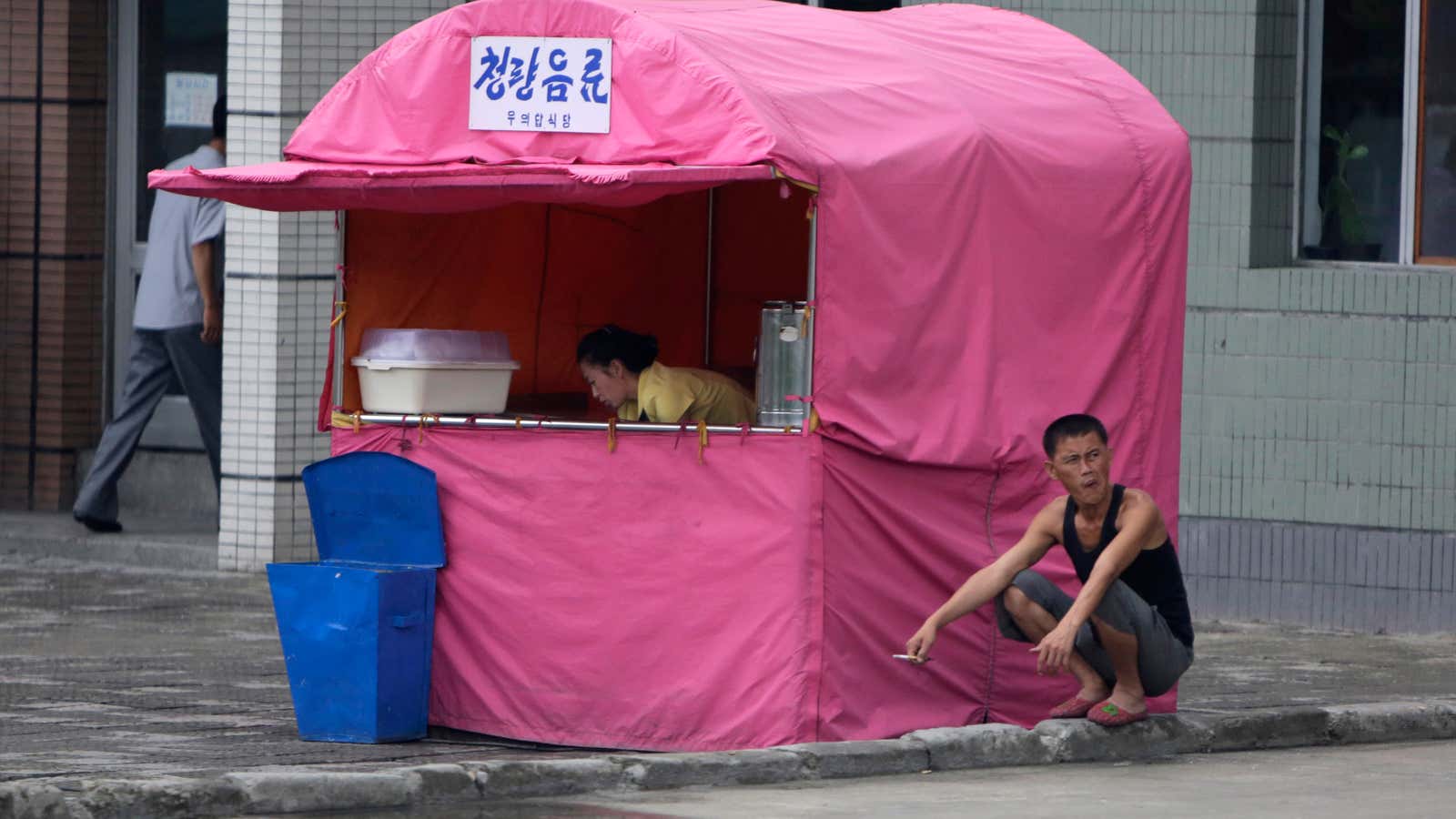North Korea’s isolation from most of the world is not just economic and diplomatic, but technological too. Only about 3 million of its people have access to its domestic telecommunications network, which does not permit access to outside countries. Its internet, meanwhile, is accessible only to the nation’s elites.
But some North Koreans have been able to circumvent these restrictions, thanks to the spread of illegal black market phones into the country. A new report from Amnesty International explains that these smuggled devices—referred to as “Chinese mobile phones,” even if they’re not actually from China—have become an important tool for North Koreans looking to connect with loved ones who have left the country and want to stay in touch.
If their relatives or friends at home don’t already have a “Chinese mobile phone,” the report explains, ”often the person who has left will try to send them a phone, for example one bought in South Korea, Japan, or China.”
North Koreans who obtain one of these smartphones can connect with people outside the country by installing a Chinese SIM card in their device. They then must go to a part of the country close to the Chinese border, where they might pick up signal from a neighboring Chinese network.
Obtaining one of these smartphones and a SIM card for it is not easy, and they can be expensive. One North Korean told Amnesty international that a SIM card costs 100 yuan, or $16—equivalent to 10 months of his salary.
Relatives abroad can work through a system of middlemen and bribe border soldiers or “brokers” to deliver them to family members. Bribes and fees to facilitate these transactions can cost up to $500, another North Korean told Amnesty.
And using the phones within the country involves inconvenience and risk. People often have to travel across the country to access the smartphones and pick up a signal. And using a smartphone to make calls outside of the country is grounds for imprisonment. Under the National Security Law of South Korea, anyone who “makes contact with a member of an anti-government organization”—which could mean simply a South Korean—could face up to ten years in prison.
In order to combat the spread of black market smartphones, the North Korean government has introduced various surveillance methods to detect people making illegal calls.
“In a bad case, we would be sent to the political prison camp, where we would expect a long prison term,” one smartphone owner recounts. “In a lighter case, we would be sent to a reform facility, and imprisonment would be for 1-2 years. Most people got out with a bribe though.”
